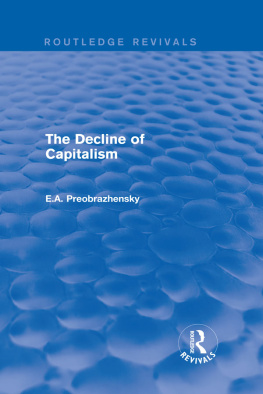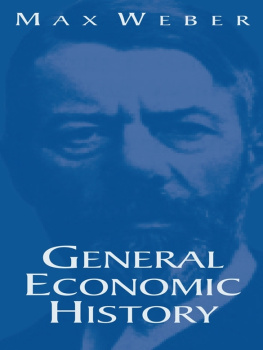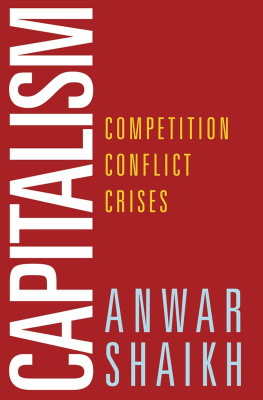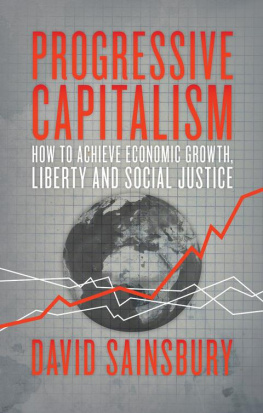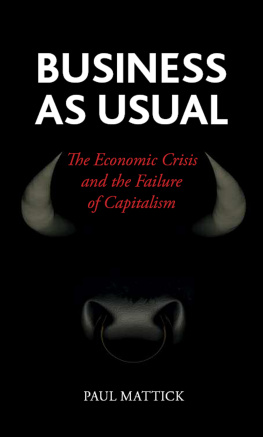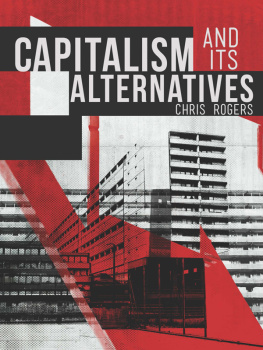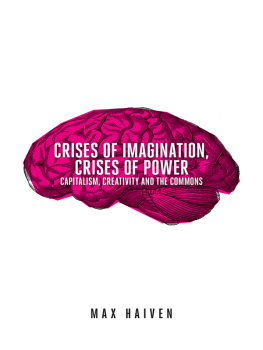First published 1985 by M.E. Sharpe
Reissued 2018 by Routledge
2 Park Square, Milton Park, Abingdon, Oxon OX14 4RN
711 Third Avenue, New York, NY 10017, USA
Routledge is an imprint of the Taylor & Francis Group, an informa business
Copyright 1985 by Taylor & Francis
No part of this book may be reprinted or reproduced or utilised in any form or by any electronic, mechanical, or other means, now known or hereafter invented, including photocopying and recording, or in any information storage or retrieval system, without permission in writing from the publishers.
Notices
No responsibility is assumed by the publisher for any injury and/or damage to persons or property as a matter of products liability, negligence or otherwise, or from any use of operation of any methods, products, instructions or ideas contained in the material herein.
Practitioners and researchers must always rely on their own experience and knowledge in evaluating and using any information, methods, compounds, or experiments described herein. In using such information or methods they should be mindful of their own safety and the safety of others, including parties for whom they have a professional responsibility.
Product or corporate names may be trademarks or registered trademarks, and are used only for identification and explanation without intent to infringe.
Publishers Note
The publisher has gone to great lengths to ensure the quality of this reprint but points out that some imperfections in the original copies may be apparent.
Disclaimer
The publisher has made every effort to trace copyright holders and welcomes correspondence from those they have been unable to contact.
A Library of Congress record exists under LC control number: 84023592
ISBN 13: 978-0-873-32295-9 (hbk)
ISBN 13: 978-1-315-17903-2 (ebk)

Evgeny Preobrazhenskys book The Decline of Capitalism is one of the best works in Soviet economic theory. My own familiarity with the book resulted from my research for The Crisis and the Crash: Soviet Studies of the West, 1917-1929 (1981). I discovered that Preobrazhenskys study grew out of his analysis of the Soviet domestic economy (see E. A. Preobrazhensky, The Crisis of Soviet Industrialization, ed. Donald A. Filtzer, 1979) and at the same time addressed a whole new set of theoretical problems in a specifically capitalist context. While several works by Preobrazhensky remain unavailable in English, I chose to undertake a translation of The Decline of Capitalism as a work that would help English-language readers to appreciate the full extent of the mans theoretical creativity.
The Decline of Capitalism is a technical work in the sense that it develops Marxs schemes of expanded reproduction by incorporating the uneven (or cyclical) growth and replacement of fixed capital. Preobrazhensky assumes, for this purpose, that his readers will be literate in Marxism. I have therefore attempted to provide an introduction that will both deal with the technical issues and also situate The Decline of Capitalism in the history of Marxist political economy. I would hope and expect that the introduction will be a useful supplement to Preobrazhenskys own text. The note references, both in the introduction and in the annotated text, are to English-language sources wherever possible.
One of the major difficulties in preparing this translation of Preobrazhenskys work was the large number of typographical errors in the original Soviet edition, Zakat Kapitalizma, published in Moscow in 1931 by the state publishing house Sotsekgiz. These errors were especially bothersome when they involved the tables and the numerical examples of reproduction. The problem was further compounded by the fact that the tables rarely gave adequate or correct references to the original statistical sources. For his extraordinary resourcefulness in locating the original sources and recovering accurate data, I am very grateful to my research assistant, Laszlo Gyula Jobbagy. In addition, I wish to express my gratitude to Mary Pacy, June Wood, and particularly Brenda Samuels, who prepared the typescript in its final form.
Kearney, Ontario
July 1983
E VGENY A. P REOBRAZHENSKY (1886-1937), theorist and economist, was one of the foremost early Bolshevik leaders. Among his best-known works are The ABC of Communism (1919), which he wrote with Nikolai Bukharin, The Economics of the Transition Period (1920), From NEP to Socialism (1922), The New Economics (1926), and The Theory of Depreciating Currency (1930). The Decline of Capitalism (1931) was his last published work.
R ICHARD B. D AY was educated at the University of Toronto and the University of London. He is professor of political economy at Erin-dale College, University of Toronto. His many publications include Leon Trotsky and the Politics of Economic Isolation (1973) and The Crisis and the Crash: Soviet Studies of the West (1917-1939) (1981), the first volume of a two-part study of Soviet economists analyses of the capitalist system. Professor Day was also translator and editor of N. I. Bukharin, Selected Writings on the State and the Transition to Socialism (1983).
As we have seen already, the world economic crisis of 1930 is the first typical crisis of imperialism. The imperialist character of the crisis of 1907 was expressed more in its international political effects than in the character of the economic cycle itself. Although the crisis erupted in a country with the most highly developed monopolism and appeared very suddenlya pattern that results, as we have seen, from the very nature of the cycle under monopolismnevertheless this crisis still had transitional features in common with a crisis from the epoch of free competition. But we shall have more to say in this respect elsewhere.
The crisis of monopolism that came to maturity in 1914 passed over into an imperialist war. In this way the world learned in practice just what an imperialist world war involves, but it did not have the experimental opportunity to become familiar with the most characteristic features of a world economic crisis under imperialism. Those features likewise remained hidden during the economic crisis of 1920-1921, involving the liquidation of inflation. On the other hand, that crisis helped the world economy to settle down on the basis of conditions created by the world war: the economic development of some countries was forcibly held back by the outcome of the conflict, while other capitalist countries acquired the opportunity to develop at the expense either of the vanquished or of countries exhausted by the war, all of this occurring in the context of a general slowdown of the whole systems tempo of development.
Signifying a blood-letting from one part of capitalisms body in order to permit freer development in another, the world war provided extraordinary reinforcement to the unevenness of capitalist development and thereby created the preconditions for a unilateral and onesided economic expansion in one portion of the world economy. The war hastened with unusual force a process apparent even before it began, namely, transfer of the worlds economic center from Europe to America, with the result that a new, one-sided economic expansion could only begin on the other side of the ocean. The only exception in Europe was France, which received a strong impetus for development from the destruction of Germany and Austria and grew at their expense. This one-sided character of the worlds development, resulting from the war, also predetermined both the character of the expansion and the source of a future crisis. It was perfectly inevitable that source should turn out to be the United States and its immediate economic periphery in the other countries of North and South America, which had been drawn into the expansion by the United States.

